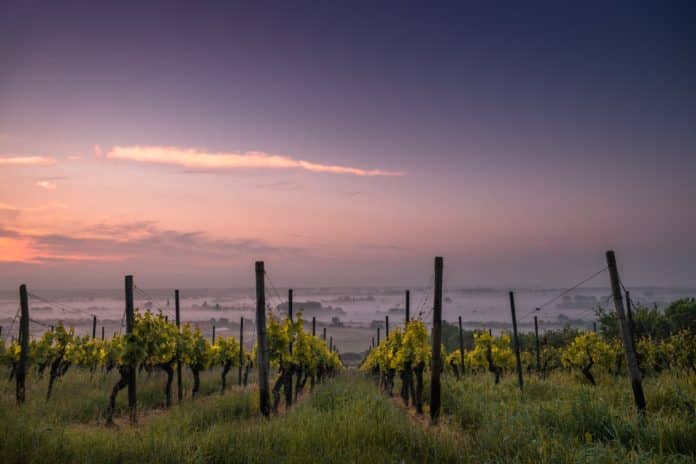While for many Europeans today wine production is associated with France, Italy and Spain, the last 30 years have seen a new development in the Nordic countries and especially in Denmark.
Sustainable solutions are at the heart of the UN’s Sustainable Development Goals. They are, amongst other things, about innovation, but in some cases it’s also about taking into account the circumstances provided by climate change, for better or worse. The Dane Sven Moesgaard did just that when he started his own wine production in Denmark in 1995. A wine production which has since won many awards.

In 1995, Sven Moesgaard started the vineyard Skærsøgaard in Dons outside of the town of Kolding. At the time, the notion of Danish wine was seen as a silly idea. A few years later, in 2000, both Denmark and Sweden were given permission by the EU to cultivate commercial wine, but it would be several years before Danish wine began to be taken seriously.
In the late 2000s, Danish wines started winning their first competitions. “When evaluating wines, there is a negative bias towards wines from lesser-known regions. That’s why the competitions are based on blind tasting,” says Sven Moesgaard.
It was on this basis that Dons Cuvée sparkling wine won a silver medal at the international Effervescents du Monde wine competition in 2007. The medals won between 2006 and 2010 meant that Danish wine for the first time began to be taken seriously internationally.
Climate change

To produce good wine, you need a temperate climate that is neither too cold nor too hot. With the temperature rises caused by climate change, some of the more equatorial wine regions will no longer be able to produce wine, and even growing crops such as maize could also become impossible, says Sven Moesgaard.
“If you have a wine that is produced too hot, there is not enough acid in it and it lacks freshness. That’s the reason why we’ve seen winegrowers in southern Europe who, as a result of global warming, first moved their fields to the south side of the mountains because the valleys had become too hot. Now we see that they have to move to the north side of the mountains, where it is even colder.”

Sven Moesgaard adds, however, that the lack of acidity can be compensated for by adding acid from other areas. Denmark currently does not have the issue, however, because of its favorable climatic conditions. This does not mean that wine production will remain the same. Moesgaard points out that climate change means a gradual switch to other wine varieties.
“Fifty years from now, we can have the same varieties that are used in France and Spain today,” he says.
Sustainability
When it comes to sustainable wine production, two factors are particularly important: transport and pesticides. If you buy a wine that comes from the other side of the world, it obviously has a much bigger carbon footprint than if you buy locally produced wine.
There is no getting around the fact that there are various natural risks associated with wine growing, but that does not mean that pesticides and herbicides are the only possible solution.
“We base our work on certain purity criteria that are quite different from a number of other countries where they use herbicides and pesticides. Instead, we breed strong varieties that are resistant to fungal attack.”
In 2018, the EU awarded the DONS wine region an appellation, making Skærsøgaard Europe’s northernmost official wine region. Skærsøgaard’s sparkling wines “DONS” are certified and therefore, according to the EU, can only be grown in the “Defined area: The town of Dons near Kolding, Denmark; more specifically the tunnel valley of fluvioglacial gravel and sand sediments within the cadastral district of Dons By, Almind. “
See also in Danish here.




